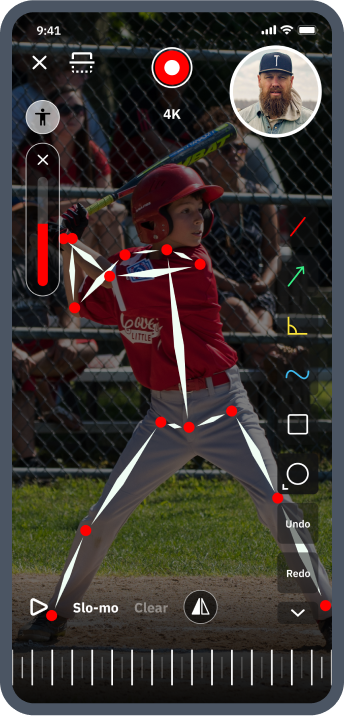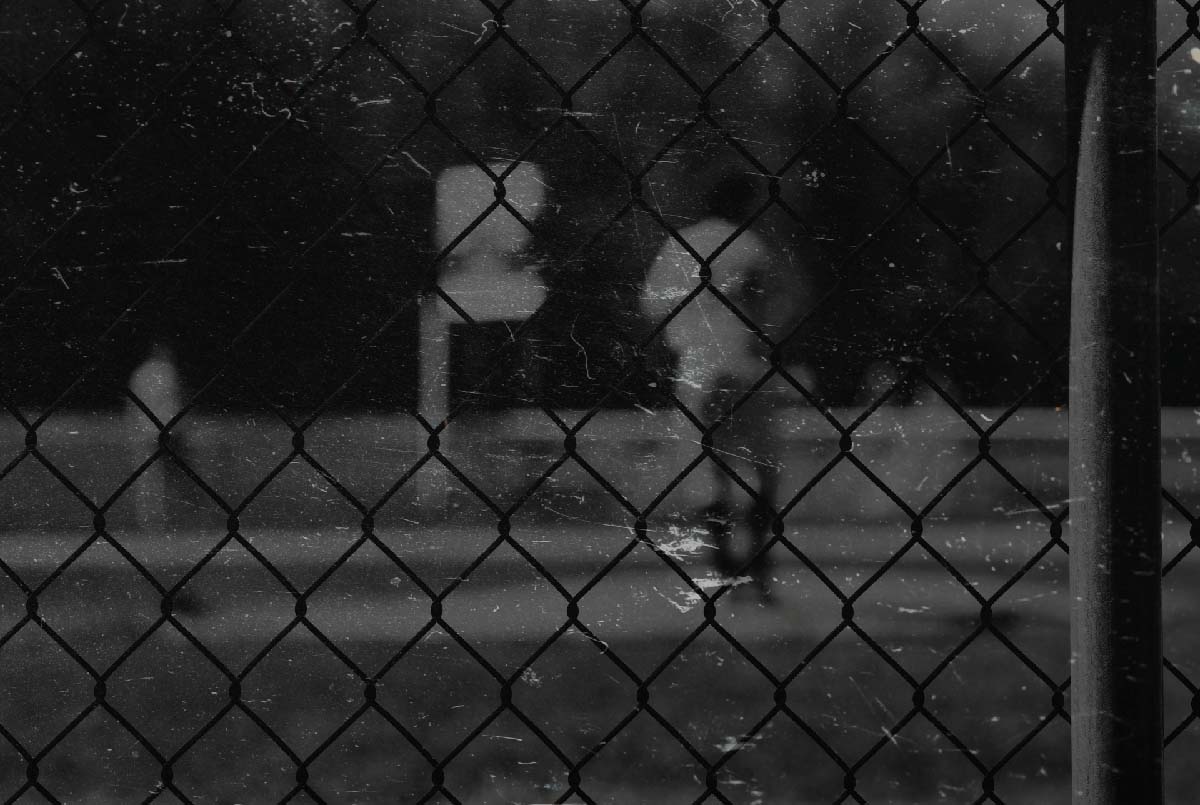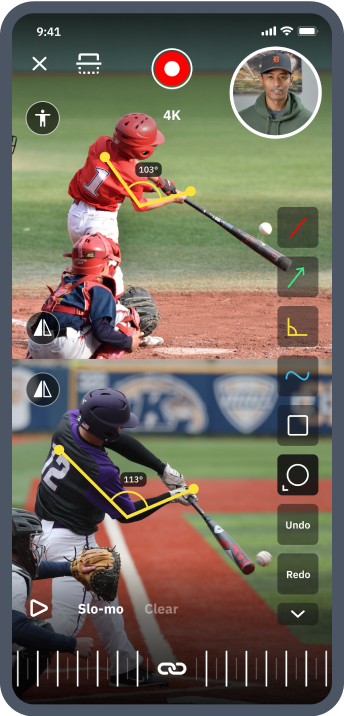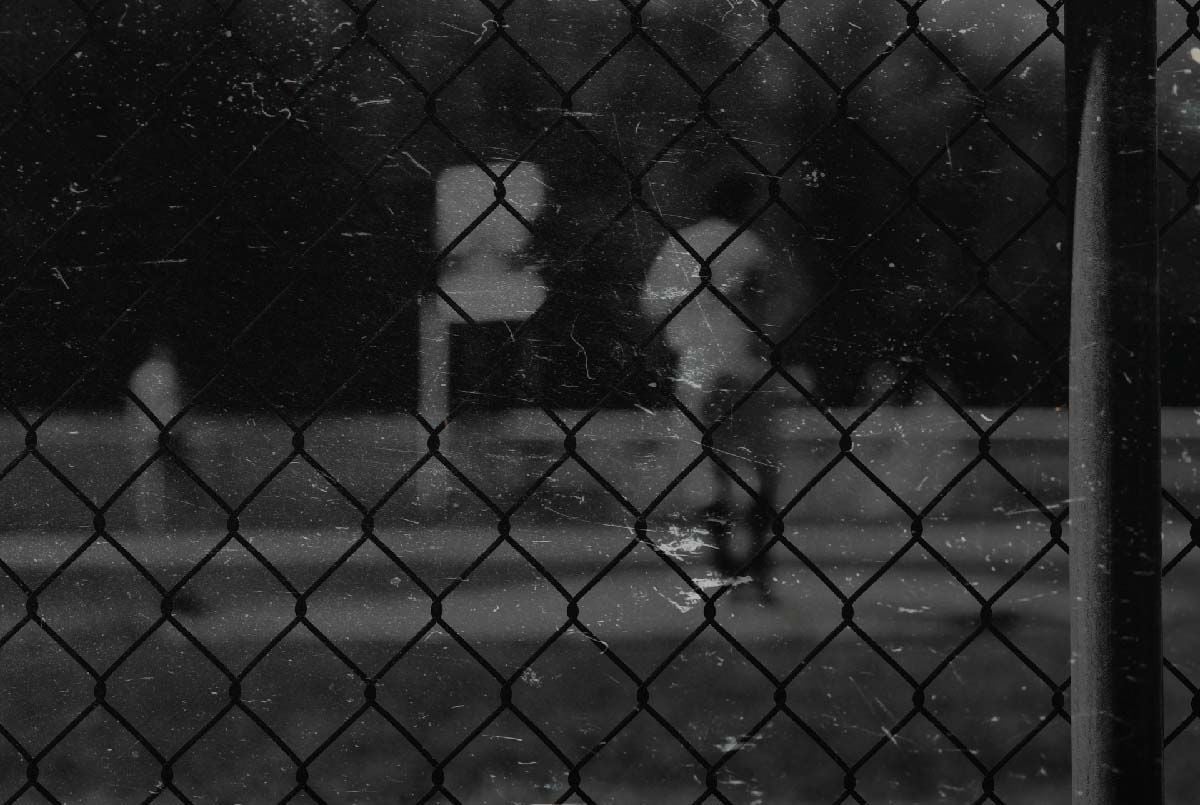Should You Attend a College Softball Camp? | An Unfiltered Guide for Parents and Players

College softball camps can be a confusing topic for both parents and players.
Especially because so much information that you’ll find about them online is written by someone with an agenda – usually to sell you on paying for either a camp or clinic.
Despite the single name on the byline, the facts and recommendations gathered below were sourced from numerous candid conversations with college coaches of all divisions.
Since a key educational and athletic legislation change in 1972, participation in women's collegiate sports has grown immensely, making mechanism like college camps all the more important.
Let's get into it.
Types of College Softball Camps
In the world of college softball recruiting, there are four major types of events: prospect camps, skill camps or clinics, team camps or showcases, and combines.
Let’s pop-up slide into each major type.

Prospect camps
These camps are usually one day and hosted by a given college’s coaches and players.
You’ll get run through a series of drills and evaluations since the main purpose of these events is the player assessment of potential recruits.
Prospect camps are usually only hosted by one school. They’re also more beneficial if you’ve already made contact with the coach of that school and have a real interest in spending 4-5 of your formative years there.
These camps range in price from $60-$200, but for many players, they’re a key component of the recruitment process.
The investment could certainly be worth it, but we’ll explore this in more detail shortly.

Skills camps, AKA clinics
Skills camps, also referred to as clinics, are the most common type of softball camps overall. Such camps may be focused on developing all skills or specific ones like pitching, catching, defense, etc.
Some colleges will host a series of clinics, with one day devoted to pitching, the next day to defense, the next to offense, and so on.
These camps focus less on player evaluation and more on instruction. For those events that last longer than one day, the program might also provide food and lodging for participants.
These overnight camps are great for checking out campus facilities, but they’re also more expensive. Such skill camps can be between $200-$800.

Team camps, AKA showcases
Team camps, otherwise known as showcases, allow entire teams to register together.
Your team will likely scrimmage against other teams, so that coaches gathered from different schools can see how you handle various in-game situations.
This type of camp might last a few days, sometimes with educational training sessions in the morning and games in the afternoon.
Team camps range from $100-$300 per player or a much larger number paid on a per team basis.
The level of instruction at showcases like these is often lower and less personalized compared to skill or even prospect style camps.
However, if your goal is gaining exposure with multiple coaches at once, then showcases can be useful.

Combines
Another more recent type of event is often called a combine or "athletic testing."
At these events, you’re tested on things like running speed, agility, grip strength, hitting exit speed, and throwing velocity. You won’t usually find college coaches at pure combine events.
The purpose of these events is getting your key softball data verified, so you can send it to coaches when you reach out to them.
That said, as technology has become such an integral part of our game, with college coaches relying heavily on performance metrics to inform recruiting efforts, combine-like tests are now being incorporated into all of the college softball camp types that we’ve covered so far.

What Are the Benefits? Is It Worth Attending College Softball Camps?
College softball camps, clinics, and showcases have several benefits, most notably for players who dream of playing college ball (and perhaps even the Olympics one day?).
There are three main reasons for attending camps:
- To get college-level instruction and gain insight into how collegiate athletes train.
- To see where your skill and development levels are compared to your recruitable competition and to the current college athletes you hope to replace.
- To meet with college coaches or to demonstrate skills in front of coaches you’ve already made contact with.
Keep in mind that it’s only older players, ages 13-18, who have recruitment goals with these camps.
For younger players, ages 7-12, the focus should be entirely on instruction and overall improvement.
Unlock your ballplayer’s full potential
Find the perfect vetted coach to build a solid foundation or take your player's skills to new heights.
Download the free app

Benefit #1 – Exposure
One of the biggest benefits of college camps is showing your softball skills to coaches. If you’re serious about playing softball in college, then attending these camps is highly recommended.
If you have a particular school you’d love to play at, going to their camp or clinic is all but a must.
Colleges do use these camps to generate revenue for their programs. In the interest of keeping it unfiltered, we’d add that much of the profits made from hosting these camps are often used to pay the otherwise unpaid assistant coaches on a college’s staff that the school, unfortunately, can’t afford to compensate.
Still, many college coaches do also see these camps as an essential part of the recruiting process. And they do use them to get to know the players they’re interested in better than they can through other channels.

Benefit #2 – Receiving an Offer
Another benefit of softball camps is the possibility of receiving an offer.
Coaches can extend offers to players via email or over the phone, but many prefer to do so in person, sometimes even at one of these camps.
According to a survey by Next College Student Athlete (NCSA), 60 percent of D1 coaches find the majority of their recruits at camps.
Don’t rely solely on camps, though, as the same survey found that over 80 percent of D1 coaches leverage travel team relationships, and almost 75 percent do also recruit at tournaments and showcases.
When it comes to coaches extending offers, make sure you’ve thoroughly read the current NCAA, NAIA, and JUCO regulations on recruitment.
The rules are complex and change often, and you don’t want to get into any trouble – or get a coach into any.

Benefit #3 – Improving Skills
While it’s not the focus of every camp or showcase, skill improvement can be a benefit of some softball camps, as we discussed above.
Especially for younger players, camps are a great way to get top-notch instruction.
But, for older players, camps of all types can be a way of discovering how you measure up to other camp attendees, to current college players, and to the expectations expressed by college coaches.
However, to reap the benefits of softball camps, clinics, and showcases, you have to do some research.
If it’s an event where multiple colleges will be represented, first check that your target school or schools are even on the list.
And before showing up on day one, send an introductory letter or email to the coaches of your target schools, so they know to look out for you at the camp.
Showing up to a camp or showcase without making contact first significantly lowers your chances of being noticed or receiving an offer after the fact.
Additionally, know what the focus of the camp or clinic is before signing up.
Is it mostly instructional? Will they offer you a take-away evaluation of where you stand at the end?
Then, ask yourself exactly what your goals are at the moment and make sure the camp and your goals are aligned.
Know the answers to all of these questions before you go. Otherwise, these camps will be a waste of your time and money.

How to Pick the Right Softball Camps
As stated, knowing your goal is a big part of choosing the right softball camp.
Are you looking for training and improvement?
Then skills camps and clinics are a better fit for you, especially if you’re at an early phase of the recruitment process.
Skills camps and team showcases can also be worth looking into if you don’t have a specific school in mind yet.
At these camps, you often have the chance to meet several coaches at once and compare their coaching styles.
If there’s a school that you have your heart set on playing for though, then prospect camps are usually your best option. You can interact with the coach, take a tour of campus, and learn if this program is really the one for you.
A prospect camp is also an opportunity for the coach to evaluate you more closely – as ideally, they will have already seen the skills highlight reel video you sent them beforehand and possibly seen you play in travel tournaments.

Other Factors to Consider
Ensure that you’re attending the right camps for the right reasons, as they’re not cheap. Travel time and lodging are also financial factors to consider when choosing a camp.
If you’re not sure where to start looking for softball camps, this list from the NCSA is a great start.
Don’t just go to random camps without purpose, always have a personally stated and known objective for attending.
And conduct some research on the college or university as a whole before deciding on their softball camp:
- Does this school have the major you’re interested in?
- Is it far from home? Is that a good or bad thing?
- What is campus life like?
- What year is the starting _____(insert your softball position here)? And how to I measure up to her?
You can find out more about colleges once you visit them, but know the basics before going.
Also, various college coaches that we spoke to mentioned that ballplayers who demonstrate knowledge of the college, its history, or the backgrounds of their coaching staff are really helping separate themselves from the pack.
You still need the skills, but researching and retaining such information shows coaches that you’re personally invested in your own future and serious about their program – and these signals among all the noise of your competition go a long way.

What Should You Expect at Softball Camps?
Softball camps often follow a familiar structure:
- Check in to the field
- Get intros from the coaching staff and current players helping with the camp
- Engage in a large group warm-up, made up of a static stretching and movement prep drills
- Break up into small groups that rotate through stations based on things like hitting, throwing, fielding, and pitching.
- Eventually engage in some live gameplay
This is simply the usual order of operations that you or your ballplayer can expect.
Now let’s address something much more important – how your athlete can stand out and make the most of attending a college camp.

Essential Tips for Making the Most of a Softball Camp
Choosing to attend a camp is only part of the process. To take the fullest advantage of a softball camp, there’s a few things to keep in mind before, during, and after the camp.
We’ve hinted at these concepts and tactics already, but now let’s get even more fine-grain.
1. What to do before the softball camp
Not to beat a dead horse, but if you want a college coach to notice you at a camp or clinic, you must contact them beforehand.
In practice, this means sending an introductory email often with a highlight reel video attached.
Increase your chances of having a coach respond by personalizing the email, too.
You should familiarize yourself with the coach and their staff. What are their names, and what is their playing or coaching background?
This preemptive research doesn’t mean much if your skills aren’t to the correct level for that school, of course.
But, again, during phone or in-person conversations with coaches, showing that you care enough about your own journey to do this kind of homework can only help your cause.
It also shows coaches that you are mature enough to take this transition into college seriously, and that you are genuinely interested in their program specifically – not just fishing for any scholarship money you can get, regardless of its source.
Not only will following coaches on social media help you get to know their names and backgrounds better, but it also may provide you with great insights into their personalities and coaching styles, so you can see if they are a match with your own preferences or needs.
Finally, while following them online, the program’s trainers or current players may drop valuable information on the types of exercises and equipment that their strength and conditioning programming focuses on, along with specific physical expectations that they place on their athletes.
Taking note of these details allows you to perfect those exercises, master that piece of equipment (barbell, kettlebell, etc.), and train to meet those physical expectations.
Not only will this prepare you for your freshman year at the school, but it can even help when you are pre-signed, while attending that college's camps years earlier.
While at the camp, if a coach or current college player asks what you do for training and you describe the same types of exercises and equipment and programs that their athletes are subject to every day, you are demonstrating how well you will fit into their program – which is incredibly important.

2. What to do during the softball camp
When you’re at the camp or clinic, you should be in full self-marketing mode.
You don’t have to be fake and act like someone you’re not. Just keep in mind that nobody else can make you look good except you.
Be polite, friendly, and hard-working. Confidently introduce yourself to the coaches and staff, as well as the other participants.
Try to speak with everyone as much as possible, to show how personable you are. Many coaches report poor attitude as one of their recruiting “deal-breakers.”
Don’t forget to look and act the part at the camp, too.
Dress in uniform, bring all your equipment, and, of course, hustle everywhere. This is how serious softball players should always conduct themselves at games, practices, and tournaments, but it’s especially important at recruiting events.

3. What to do after the softball camp
Always follow-up after a college camp or clinic. Send an email to each of the coaches, thanking them for their time and instruction.
You don’t want all the work you put in to go waste, so make sure coaches keep your name in mind by following up.

Should You Attend that College Softball Camp?
Attending a college softball camp is a bigger decision than you might have realized.
When asked if college camps are worth attending, many parents emphasized the same point: do your research.
And as one coach put it, “Do your homework before you intend on attending a college camp or clinic,” adding that players “should be in communication (expressing interest, updates, schedules) way before they show up to a camp.”
Others said that “Camps vary by schools and players,” and that if you’re interested in a certain school, camps are “a great opportunity to see the campus, meet the coaches, players and see their facilities.”
Most parents and coaches agreed that players who want to pursue college softball should attend at least one camp, if not more.
To see what else coaches have to say about camps and showcases, check out this video from NCSA:
Wrapping Up
Hopefully, by reading this guide on college softball camps and clinics, you now understand how they work and what benefits they hold.
Now it’s up to you to make an informed decision as to whether attending a camp is right for you or your softball player.

About the Author
Courtney Withrow
Professional Writer
Originally from the U.S., Courtney is a Brussels-based freelance writer with a Master’s degree in International Relations. She grew up playing softball and still loves the game.

